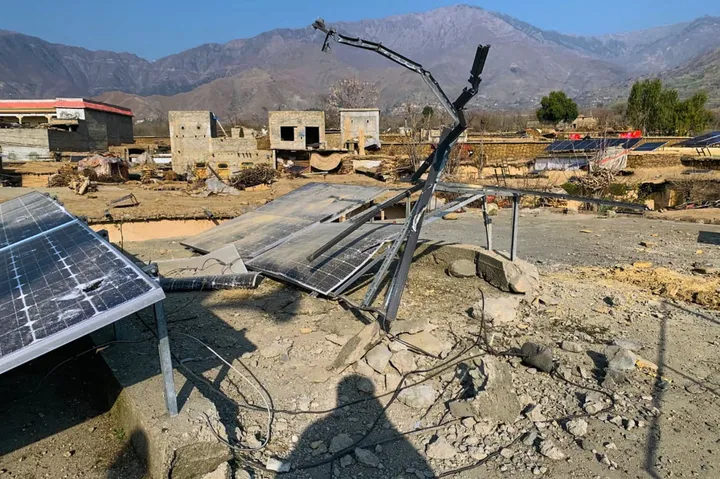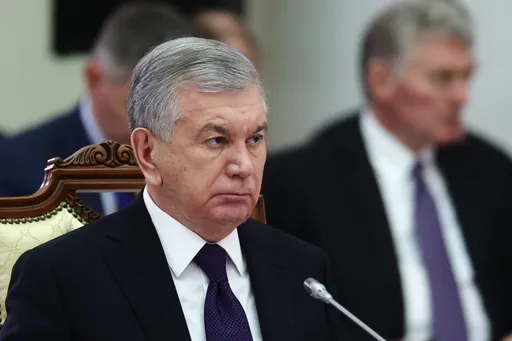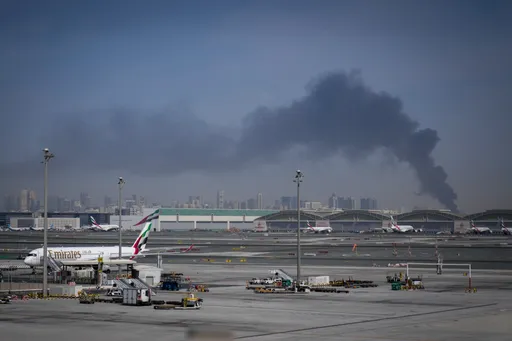Afghanistan's traditional council, the Loya Jirga, has convened in the capital to decide whether or not to release a final group 400 Taliban prisoners, the last hurdle to starting negotiations between Kabul’s political leadership and the Taliban under a peace deal with the US.
The negotiations are a critical step towards lasting peace in the country. The talks will decide what a peaceful Afghanistan might look like, which constitutional changes will be made, how the rights of women and minorities will be protected and the fate of the tens of thousands of heavily armed men on both sides of the conflict. Besides Taliban fighters, warlords in Kabul maintain thousands of armed militias loyal to them.
The Taliban in a statement on Friday rejected the Kabul gathering, saying it had no legal status.
READ MORE:Afghan government releases more than 300 Taliban prisoners
The Loya Jirga will cost an already poor Afghanistan $4.5 million. It is being attended by several thousand people even as the Health Ministry earlier this week said as many as half of Kabul's residents have been infected by the coronavirus. Official figures of nearly 37, 000 confirmed cases are a woeful underreporting of the infection rate, according to the health minister. He said 10 million people – a third of Afghans – have been infected.
US reaction
A statement by US Secretary of State Mike Pompeo issued late Thursday made it clear that the 400 prisoners had to be released if peace talks with the Taliban were to move forward.
“We acknowledge that the release of these prisoners is unpopular,” Pompeo said. “But this difficult action will lead to an important result long sought by Afghans and Afghanistan’s friends: a reduction of violence and direct talks resulting in a peace agreement and an end to the war."
In his statement, Pompeo said the Taliban had agreed to reduce violence once talks begin.
“The Taliban have also committed to significantly reduce violence and casualties during the talks where the parties will decide on a political road map to end the long and brutal war and agree on a permanent and comprehensive ceasefire,” he said.
Since signing the agreement with Washington in February, the Taliban have not attacked US and NATO troops, but have continued to wage war with the Afghan National Security Forces. The US and NATO have also begun withdrawing some troops in line with the agreement.
February peace deal
The February peace deal calls on the Taliban to guarantee Afghanistan will not be used as a staging arena by terrorist groups to attack the US or its allies. The withdrawal of US and NATO troops hinges on the Taliban meeting those commitments and not on a positive outcome to negotiations between the Taliban and Kabul's political leadership.
The intra-Afghan negotiations that Washington had hoped would begin in March have been delayed by the reluctance of Kabul to release the Taliban prisoners. The deal called on Kabul to free 5,000 Taliban and the insurgent group to free 1,000 government and military personnel.
President Ashraf Ghani eventually freed all but 400 of the prisoners while insisting on a council to decide whether they could be released, saying their crimes were too serious for him to decide on alone.
Abdullah Abdullah, who was made head of the High Council for National Reconciliation to end political infighting in Kabul, took over the leadership of the traditional council from its previous head, Abdul Rasul Sayyaf, a warlord and close ally of Ghani's.
Sayyaf, a deeply religious conservative and inspiration for the Philippine militant group Abu Sayyaf, urged participants “to not create obstacles to peace,” without elaborating.
Ghani told participants at the opening of the council they must decide “one way or another” on the 400 Taliban prisoners because the Taliban have made clear that if the prisoners are released within three days, they will begin negotiations but if not there will be none.
He offered no instruction saying simply: “It is time to decide.”
The council is scheduled to end Sunday but Ghani said “it would be great if you decide today or tomorrow,” paving the way for an early start to negotiations with the Taliban.
READ MORE:Why prisoner exchange is the main sticking point for Afghan peace deal
Loya Jirga deliberations
Some 3,200 people were invited to the grand assembly amid tight security to advise the government on whether the prisoners should be freed.
Six Loya Jirga committee leaders and members said that based on preliminary conversations they expected the majority to vote in favour of freeing the prisoners, though they would only be able to confirm that after the meetings took place.
"If releasing 400 would result in stopping bloodshed, then so be it," said a member who heads one of the committees.
The three-day Loya Jirga has the power to advise the government, but its decision is not binding.
Concerns about the Taliban
While many Afghans see the peace effort as the best hope for ending the 19-year war with the Taliban, some question how committed the militants are to reconciliation, especially after the US completes its troop withdrawal.
Washington has been urgently trying to ease the deadlock over prisoners as it withdraws troops and President Donald Trump seeks to fulfil a major campaign promise to end t he war in Afghanistan.
"The US wants peace talks to begin as soon as possible, so it doesn't have to deal with the bad optics of withdrawing forces while the war is still raging with no end in sight," said Michael Kugelman, deputy director of the Asia Program at the Wilson Center.
"For Ghani, the advantage of a Jirga is that he can't be fully blamed for whatever decision is made, given that it would reflect a wide consensus."























